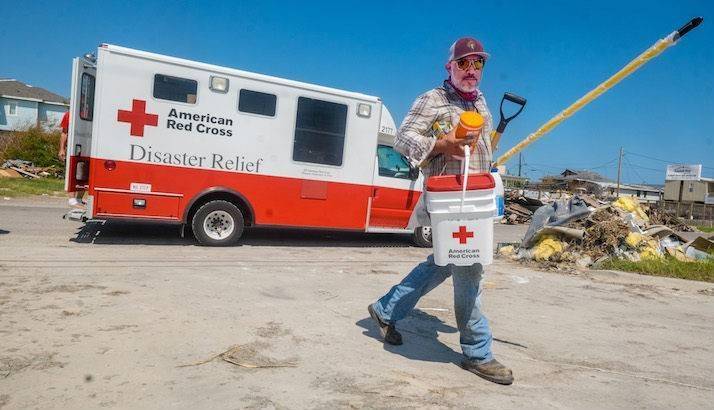Americas paying 'highest price' for divisive virus response: Red Cross

Stay tuned with 24 News HD Android App

The Red Cross decried Wednesday the politicisation of the pandemic in many countries, warning that the "divisive" response by leaders in places like Brazil and the United States was taking a heavy toll.
Francesco Rocca, president of the International Federation of the Red Cross and Red Crescent Societies (IFRC), warned that in the Americas especially, the consequences of mixed and partisan messages from politicians, often contradicting scientific advice on how to deal with COVID-19, were dire.
"America as a continent is paying the highest price for this kind of division or not following the advice coming from the scientific community," he told a virtual briefing hosted by the UN correspondents' association in Geneva.
With over 511,000 deaths and more than 10.5 million known infections worldwide, the coronavirus pandemic is "not even close to being over," the World Health Organization has warned.
The United States is the worst-hit country, accounting for a quarter of global cases and deaths, followed by Brazil, which counts nearly 60,000 deaths from more than 1.4 million cases.
Peru, Chile and Mexico are also facing surging numbers in the pandemic, Rocca said.
The Pan American Health Organization meanwhile warned Tuesday the coronavirus death toll in Latin America and the Caribbean could top 400,000 by October without stricter public health measures.
That would represent a quadrupling of the fatal cases of COVID-19, the disease caused by the virus, in a region that has emerged as a major pandemic trouble spot.
Bolsonaro 'underestimated' virus
Rocca said Brazil's President Jair Bolsonaro "underestimated the consequences of COVID, and his country is living the consequences."
Bolsonaro has regularly broken the social distancing measures in place in the capital, giving handshakes and hugs at rallies, hosting barbecues, hitting the shooting range and going out for hot dogs, generally without a mask.
The president, who famously compared the virus to a "little flu," has railed against the measures state and local authorities are taking to fight it, arguing that business closures and stay-at-home measures are needlessly wrecking the economy.
Brazil was not the only country debating whether economic interests outweigh people's health and lives, but the rhetoric there "has been more divisive, concerning," Rocca said.
"And now the results are there before the eyes of the entire world."
Rocca was also asked about US President Donald Trump's widely-criticised handling of the crisis in his country, and in particular his refusal to wear a mask.
"If the scientific community is saying that it is important to avoid to shake hands, and to wear masks, I think that the leaders should follow and listen," he said.
But the IFRC president said that a number of leaders, "not only in Brazil and the US... have been irresponsible," pointing out that "even the virus has been politicised, and this is ridiculous."
"Politicians should learn to speak with one voice. Politicians should start learning to follow the advice coming from the scientific community."
